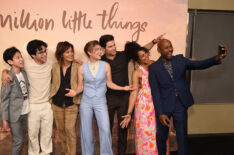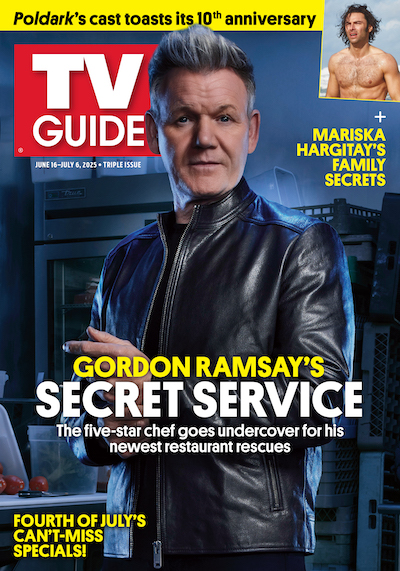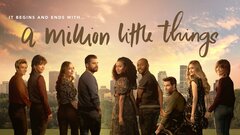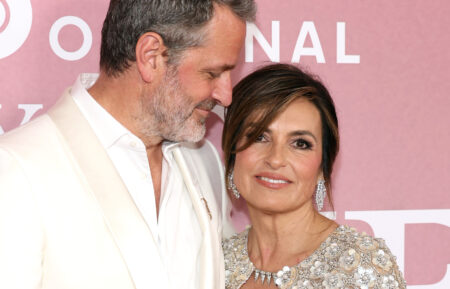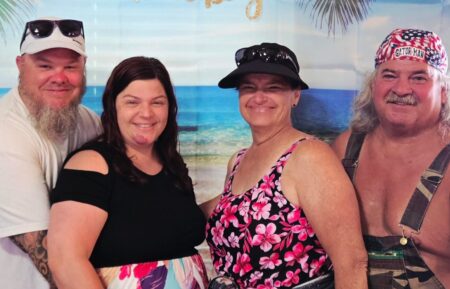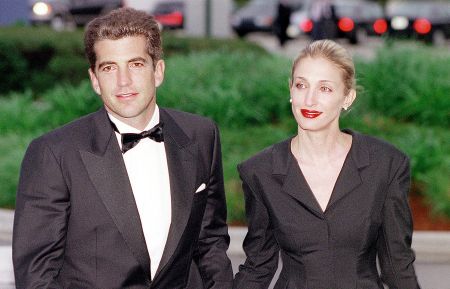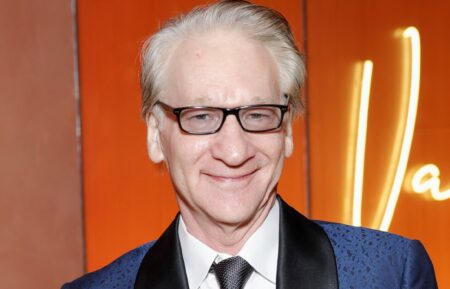‘A Million Little Things’ Bosses Go Deep Into Series Finale & Answer Burning Questions
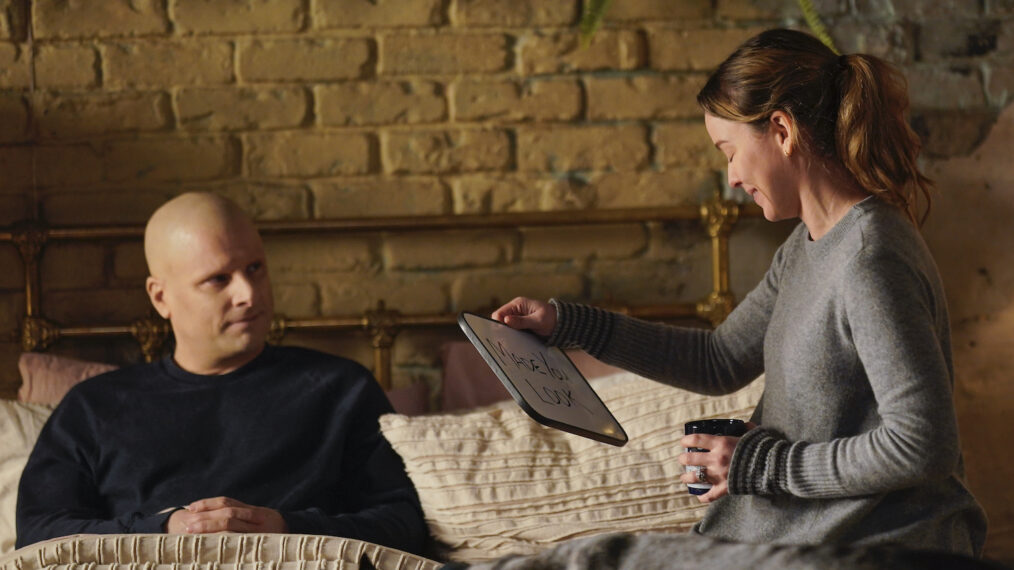
Spoiler Alert
[Warning: The below contains MAJOR spoilers for the A Million Little Things series finale.]
A Million Little Things says goodbye to one from their friend group and looks ahead in the finale.
The series ends with an assisted suicide, with Maggie (Allison Miller) ultimately the one by the dying Gary’s (James Roday Rodriguez) side when the time comes. Then it jumps forward 15 years to show the friend group happy, together, and expanding, and fittingly ends on a Bruins game, with Gary and Maggie’s son Javi in attendance with Theo, Danny, and Tyrell.
Creator DJ Nash (who co-wrote the finale with Rodriguez) and showrunner Terrence Coli answer our burning questions about the series.
DJ, talk about writing the finale with James.
DJ Nash: Incredible. Gary is a combo platter between me and him, so it seemed fitting. So much of this last season was just beautiful gifts, whether it was getting Christopher Lloyd to come to Vancouver or having the opportunity to see Christina [Moses] and Romany [Malco] direct. James had been pushing for me to direct since almost the beginning, and I said, “OK, but then we need to write one together.” … James said, “I only want to write it with you if it turns out exactly the way you want.” I was like, “That’s exactly what I want, too, so this’ll be great.”
I had been thinking of most of the story, and then with TC and the writers’ help, by the time I pitched it to James, it was pretty much figured out. He added these moves, little chiropractor tweaks that brought it to a whole other level — specifically, the last line of our series, “Have a beautiful life.” He has such a brilliant mind, and our series and certainly this episode are better for it.
Terrence Coli: James is so connected to the character of Gary, and always on this show, our actors have been great about respecting the lines that are on the page, but he would always do that, then throw in even better lines at the end of takes, ad-libs that were just so brilliant and so perfect for the moment. In Episode 12, we had that incredible scene with Gary and his doctor saying goodbye. [It] was supposed to end on, “it means the world.” It was all James to go, “I’m not going to pay for parking.” It made the moment. It lightened a scene that was pretty heavy and hard to take.
Nash: He came to me when the pilot script called for Gary to have his shirt off when we meet him, and he said, “Can we wait for a future episode?” which ended up being this “I love you” to Maggie. He said that Letterman sweater could have Jon’s DNA on it, but then you find out that it’s Dave’s DNA, and I was like, “Oh my God, that’s so brilliant.” He’s been pitching a story. We just haven’t given him credit ’til now.
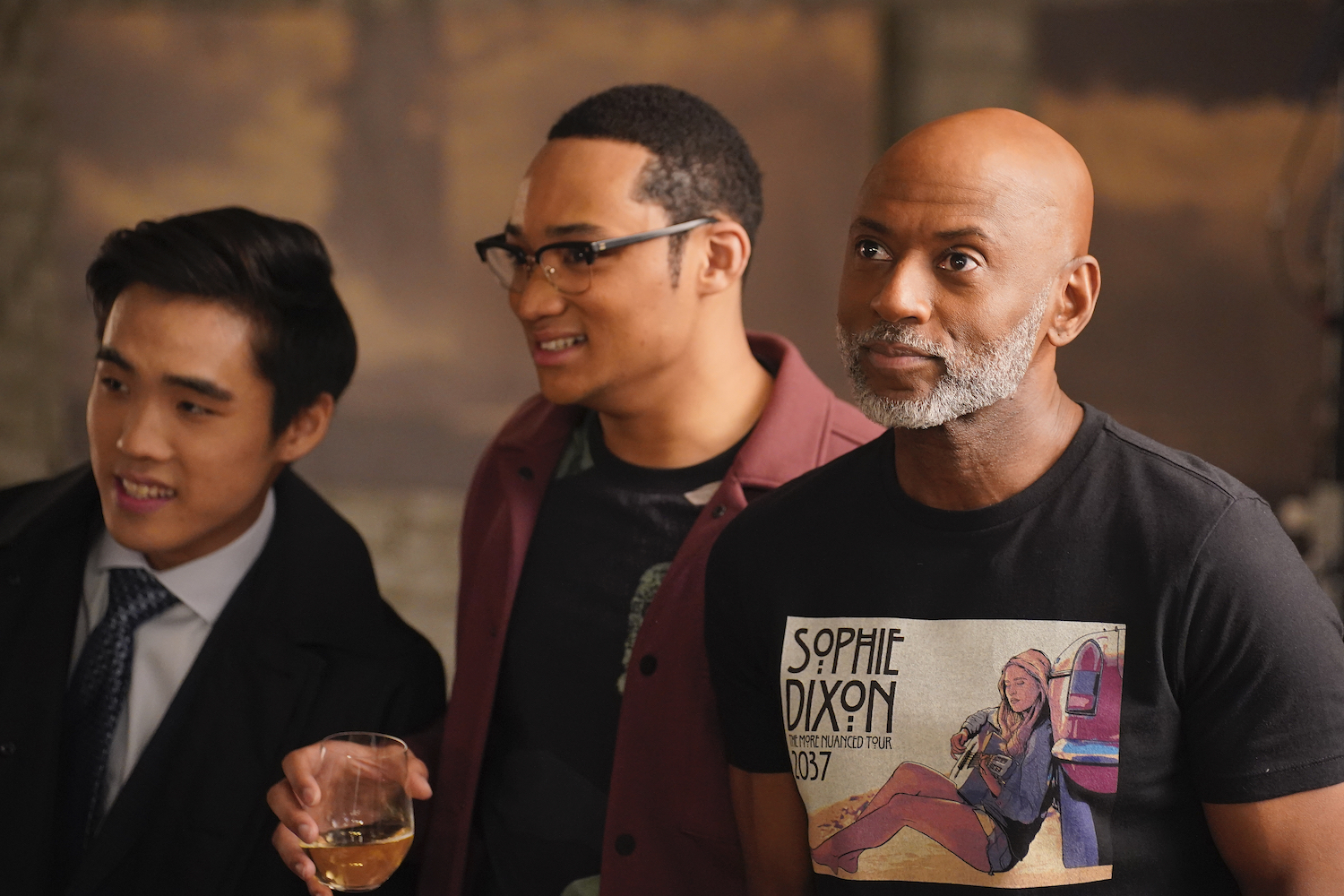
ABC/Darko Sikman
Were any significant scenes cut?
Nash: No. Act 6 was for the fans, a chance for [them] to know, “You’re going to be OK because they’re going to be OK.” There are times when you wish this story had a different ending. In writing it, we kind of showed too much. There was a scene with Regina and Rome dancing. There was a scene with Eddie [David Giuntoli] and Delilah [Stephanie Szostak] in the elevator fooling around. Act 6 was really about Javi and the audience’s perspective to see that life is OK.
How did you come up with Gary’s ending?
Nash: I knew from the beginning that I wanted to start the series with a suicide that shouldn’t have happened and end with an assisted suicide that would be the humane thing to happen. I wanted to tell a series about two friends, Rome and Gary, who both have diseases, one of whom was able to beat his and one who succumbed to it. Either the first or second day, I said to the writers, “This is where our series goes.”
Coli: You pitched it to me when I showed up [for] Season 3 — “I’m going to let you in on the secret” — almost exactly as it turned out in the final episode with the moves with the guys and then Maggie stepping in and making the decision to be the one to help. It was immediately apparent to me that it was the right way to go. We hoped that we would have five seasons, but we had a plan where we could do it at the end of Season 4 if we had to.
Nash: I know some people may be angry with the ending, and as our consultant pointed out, anger is one of the stages of grief. I think that you are feeling what you’re supposed to feel, which is, this isn’t fair.
Maggie is dating after the time jump but is not in a relationship.
Nash: There was talk of, do we bring the hockey player back? Do we bring the British guy back? It felt important that Maggie was not moving on but moving forward. It’s 15 years later, and it’s not even clear whether this is the first date she’s ever had. We talked [with] Allison about the backstory that she’d probably been on a few dates, but nothing too serious. Out of respect for her relationship with Gary, we didn’t want to have it be a guy from her past there. But at the same time, it was important to see that she, too, is moving forward and deserves the happiness that Gary would want her to have.
You had great moments with Gary and the friend group, but there wasn’t one with Gary and Katherine (Grace Park). Why not?
Nash: It’s about where each person was in this story. Katherine’s most important role was to give Eddie the courage to do this impossible thing. We didn’t want to do an episode where everyone came around the bed and just said goodbye. It was really about Katherine being the strong one, as she always is, to give the rest of the group the courage and opportunity to do what they needed to do: to be there for Eddie, to host the party.
Coli: We also knew where we were going in [Episode] 13, and we made sure that Katherine and Gary had a scene together in 12 that was pretty poignant, where we understood that Gary was really relying on Katherine to make sure that Maggie was going to be taken care of legally, particularly at that moment where they weren’t married. When we were writing that, we knew, “This is going to be probably some of their last screen time together.”
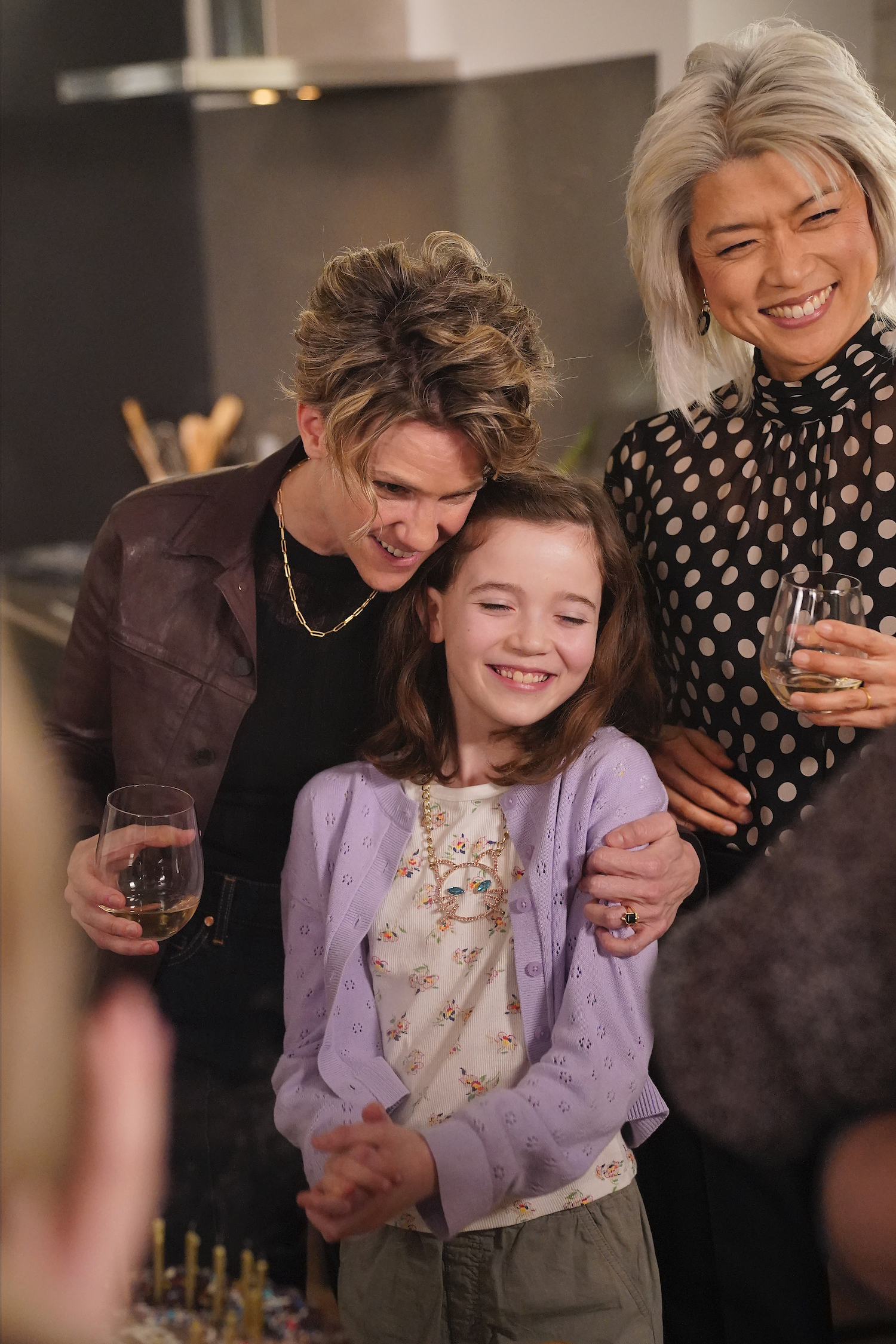
ABC/Darko Sikman
After the time jump, was that Katherine and Greta’s kid?
Nash: Yeah. There’s a lot of stuff where we had more dialogue to hit it on the head, but in looking at the first cut, I felt like Episode 12 is so brilliant, and one of the reasons it’s so effective is that it doesn’t have to carry a lot of exposition because we all know what the story is. So taking a lesson from [that], the “for good” sequence is so powerful that I didn’t want the episode to fizzle out. Less is more. If you catch it, you catch it. If you don’t, you don’t.
Talk about not only returning to Eddie and Delilah but doing so as you did, considering what that did to the friend group.
Coli: That was a tough call. We knew there was a lot of water under that bridge, and nobody carried that more than Delilah and Eddie. As we told [the] story very carefully, from Eddie’s perspective, then from Katherine’s, where she finally met someone from her past who she is a perfect match for and we really see her come to a new level of happiness through her relationship with Greta, we realized that maybe there was a chance for Eddie and Delilah to try again if we could make it work, so we set our sights on it.
It’s one of my favorite stories in the fifth season, this idea that Eddie’s a different guy now. People can change. He’s evidence of that. And even though we weren’t able to have Stephanie on the show as much as we may have liked for Covid reasons, Delilah’s been doing a lot of self-work, dealing with her own grief in France, and doing some real healing for herself. We felt like there was an opportunity there to see what it would be like to put them back in a situation where now maybe the timing is right, and their emotional health was right for each other in a way that it wasn’t the first time around on any level.
Nash: I understand where people might look at what Eddie and Delilah did and say, “I could never forgive that.” That’s why I love the story of Eddie forgiving the woman who put him in a wheelchair. That moment when he explained that to Delilah, I directed that episode, and I said to Stephanie, “That’s the moment that you fall back in love with him. That’s the moment where you go like, ‘That’s not the guy I knew before. That is a different man.'” … I feel like all of the emotional alimony had been paid.
Were there any characters you wanted to bring back this season but didn’t or couldn’t?
Nash: I wanted PJ [Chandler Riggs] to come back, but there was never a way that I could do that that felt earned. Rome already has Tyrell in his life. Every time we thought of a story, it felt like “that hands off to someone else better.”
Regina and Rome’s arcs this season showed what makes their relationship so great — how they support each other.
Coli: Rome and Regina are such an aspirational couple, and watching them has been one of the most interesting arcs in the series. Rome, obviously, was in a very dark place in the first episode. But part of that was he wasn’t confiding in Regina what was really going on in his life. There’s some line in the pilot about how sometimes certain plants need a little more watering or something. Do you remember that line, DJ?
Nash: I think that’s actually in Episode 2 about every relationship; there’s a gardener, and there’s a flower. When we find Rome in the pilot, he’s definitely being the gardener to Regina’s flower. Now it’s changed hands.
Coli: It went back and forth. That’s what I love about it. By the end of the series, Rome is taking a break from his teaching and making commercials to go, “It’s your turn to be in the sun again. I’m healthy now. Thanks a lot to the help of my friends and the strength of this marriage; I can lift you up a little bit to reach the goals that you are trying to achieve.”
Nash: This is another [part] that James added to the finale. I’ve made a couple good producing moves in my time on the show. Probably one of the best is having James write it because he was so invested. He [said], “Someone needs to object to euthanasia. I think it should be Stephanie. It’s got to be Delilah.” I was like, “We can’t have it be Delilah because she’s barely holding onto us liking the things she’s doing.” Then it was like, “Should it be Katherine?” “No, because Katherine’s the one who’s going to talk to [Eddie].” Then I was like, “Regina, with her very strong from the pilot religious roots. If she objects, we have this moment where Rome can say, ‘That’s why I didn’t tell you.'” It’s out of love that he didn’t want to burden her with — All he wanted to do was say, “I don’t know how to do this and I need to lean on you.”
It’s why he goes to his dad’s because he knows he can’t. … Lou Beatty, the humanity he brought. Those last scenes, obviously, there’s a lot of emotion with what’s going on with Gary, but when Rome hears his dad say, “Don’t forget to take your pills,” after his dad mocked antidepressants, [it] was such an incredible arc.
DJ, that was you at the game at the end, right?
Nash: It was. James felt very strongly that it’d be me. I only realized why later: When I was in the scene, he got to direct me, and he was brutal. He got five seasons of notes that I gave him back on me. I’m sitting there with 150 extras. I got the four boys in the stands mocking me. It was payback time, and it was really fun for him.
From TV Guide Magazine
Behind the Scenes With Gordon Ramsay: 20 Years of Cooking Up TV Hits
The celebrity chef reflects on redefining culinary television and his fiery journey Hell’s Kitchen to Secret Service. Read the story now on TV Insider.

